Practice Management Software: Top 7 Affordable Yet Highly Effective
Practice Management Software (PMS) is a healthcare application category that manages day to day operations. It handles both administrative and billing tasks, right from appointment scheduling to patient record tracking, billing, and insurance verification.
As per the Grand View Research, the global medical practice management software market was valued at approximately USD 12.4 billion in 2022 and is projected to grow at a compound annual growth rate (CAGR) of 9.72% from 2023 to 2030.
In the U.S. market only, the size of PMS was estimated at USD 5.5 billion in 2023 and is expected to grow at a CAGR of 9.40% from 2024 to 2030.
Certainly, the acceptance rate hasn’t been like this forever. Then, how did it culminate in becoming a niche?
So, the revolution began in 1977 when Michael “Mickey” Singer developed the first medical practice management software, known as Medical Manager. Around the 1980s when EHRs came into the picture they began integrating with PMS to simplify both administrative and clinical workflows, and then the rest is history.
The Practice Management Software Journey
Why Does It Count?
PMS became increasingly popular due to its unmatched capabilities to enhance workflows, patient outcomes, and practice performance. Across different types of practices, it plays distinct yet pivotal roles:
For new clinics, PMS helps balance patient care with limited administrative resources by:
- Reducing no‑shows with automated scheduling.
- Ensuring faster payments with accurate claims.
- Simplifying HIPAA compliance.
- Tracking growth with financial and visit trends.
For established clinics, the focus shifts from survival to scaling by:
- Optimizing multi provider scheduling.
- Managing complex workflows.
- Tracking the payment lifecycle with detailed reporting.
- Integrating with EHR, labs, and telehealth.
- Boosting retention with reminders and surveys.
- Automating tasks and delivering insights.
For outsourced partners, PMS supports:
- Multi client management with powerful reporting.
- Scalability across practices.
- Tools for consistent service delivery and compliance.
Thus, the right PMS is more than its features. With so many options available, separating the genuinely transformative ones from those that add to the clutter is a monumental task. That’s why we’ve curated the top 7 affordable yet highly effective PMS solutions to simplify your decision making.
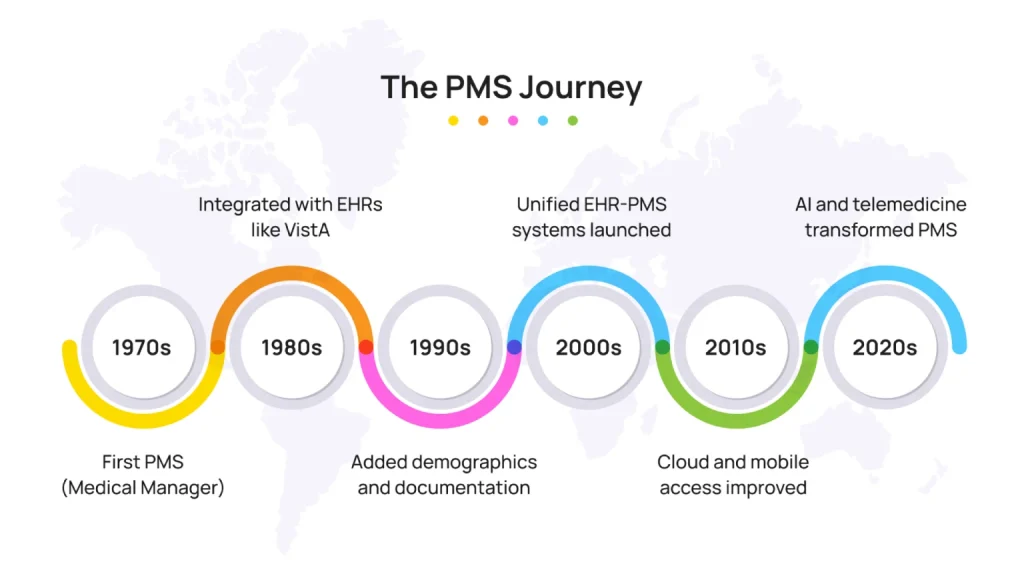
A Quick Analysis of PMS Features
|
Features | |||||||
|---|---|---|---|---|---|---|---|
|
Scheduling |
Advanced |
Group & Individual |
Simplified |
Intuitive |
Basic |
Advanced |
Advanced |
|
Billing & RCM |
Comprehensive |
Simplified |
Smooth |
In Fine State |
Basic |
Comprehensive |
Comprehensive |
|
Patient Portal |
Advanced |
Secure Client Access |
Comprehensive |
Functional |
Limited |
Robust |
Robust |
|
Telehealth |
Optional Integration |
Built‑In |
HIPAA‑Compliant |
Basic |
None |
Built‑In |
Built‑In |
|
Customization |
Highly Customizable |
Limited |
Moderate |
Moderate |
Minimal |
High |
High |
|
EHR Integration |
Full |
None |
Partial |
Full |
Full |
Full |
Full |
|
Analytics & Reporting |
Advanced |
Basic |
Moderate |
Real‑Time |
Basic |
Advanced |
Advanced |
|
Mobile App |
No |
No |
Yes |
No |
No |
Yes |
Yes |
1. OmniMD
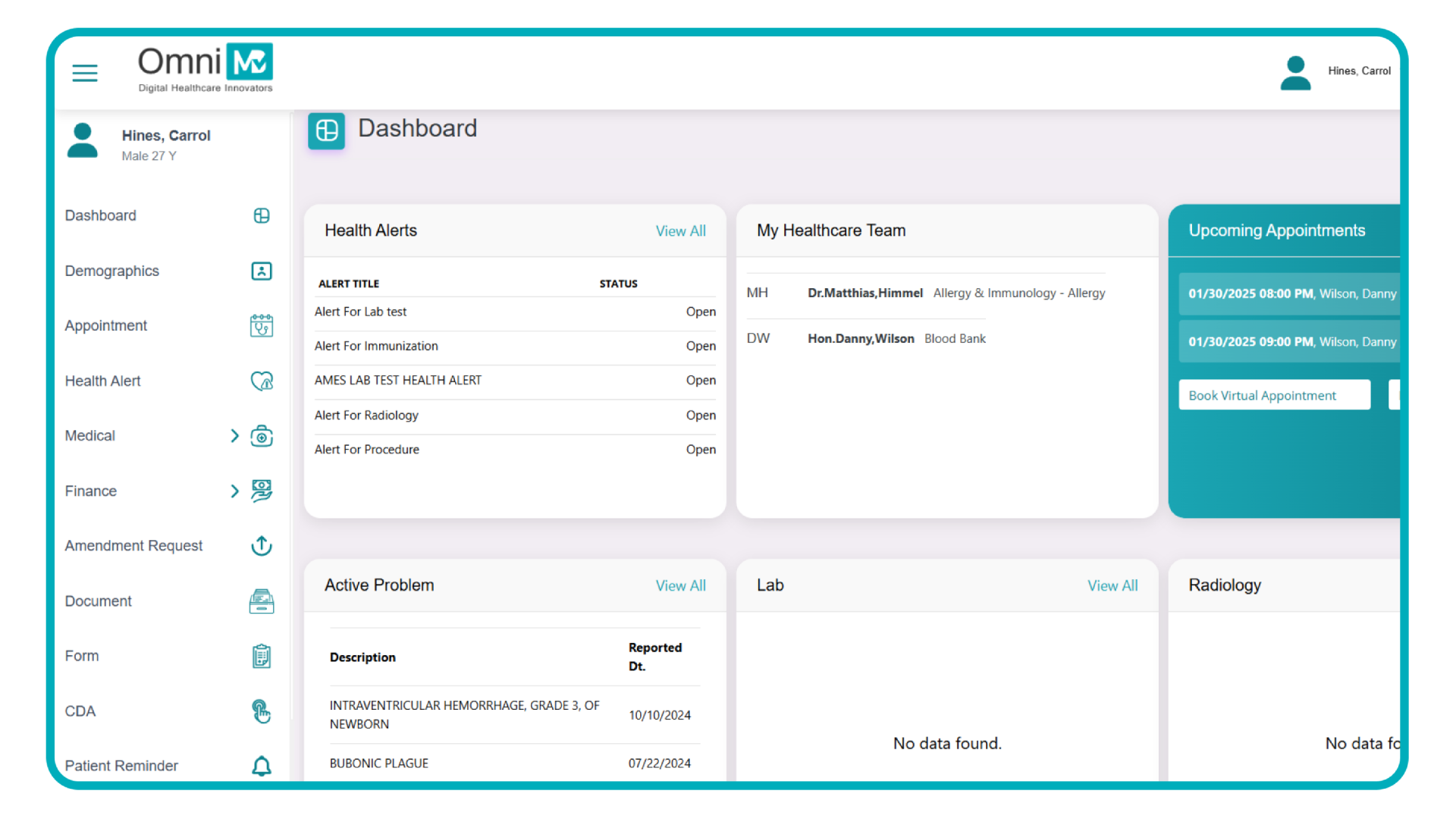
OmniMD Practice Management Software Dashboard
In an era where efficiency, automation, and patient centricity dictate success, we stand as a beacon of innovation, blending technology with the human touch to create an ecosystem of collaboration, expertise, and thought leadership.
Founded in 2001 with a vision to transform traditional care models into dynamic, technology enabled platforms, we offer over 18 products (EHR, PMS, RCM, and more), tailored for more than 20 specialties.
Why OmniMD is widely appreciated:
- Automates claims submission, eligibility checks, and payment processing.
- Enables secure, HIPAA compliant virtual consultations.
- Simplifies bookings, reminders, and communications.
- Delivers actionable financial and operational insights.
- Ensures seamless data flow between clinical and administrative workflows.
Strengths
- End to end practice management system
- Integrated EHR, PMS, and RCM platform
- Highly scalable
- Powerful analytics and reporting
Limitations
- May require training for staff unfamiliar with feature‑rich systems
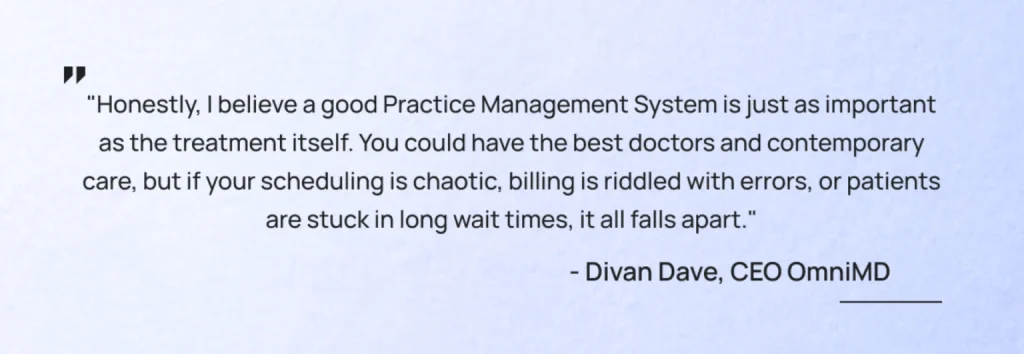
2. TheraNest
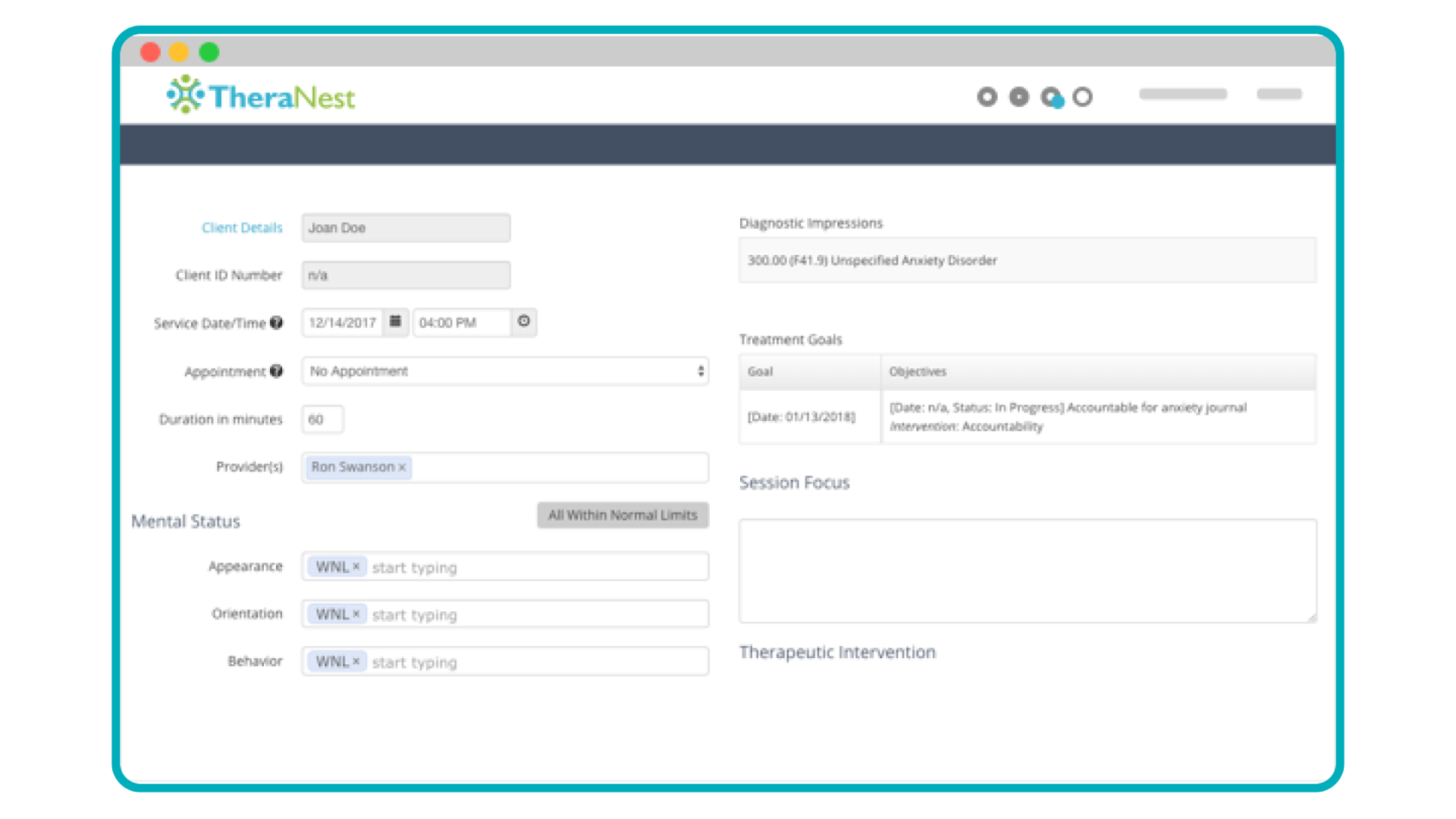
Founded in 2013 in Birmingham, Alabama, by Shegun Otulana, TheraNest focuses on mental health provider needs, creating a ‘nest’ for clinicians to work without administrative strain.
Its PMS includes:
- Telehealth for virtual client connections.
- Secure client scheduling, invoicing, and document storage.
- Billing support with insurance claims and payment processing.
- Group session scheduling.
Strengths
- Intuitive interface designed for mental health providers
- Cost‑effective
- Built‑in telehealth
Limitations
- Limited scalability for large, multispecialty practices
- Basic analytics and reporting
3. SimplePractice
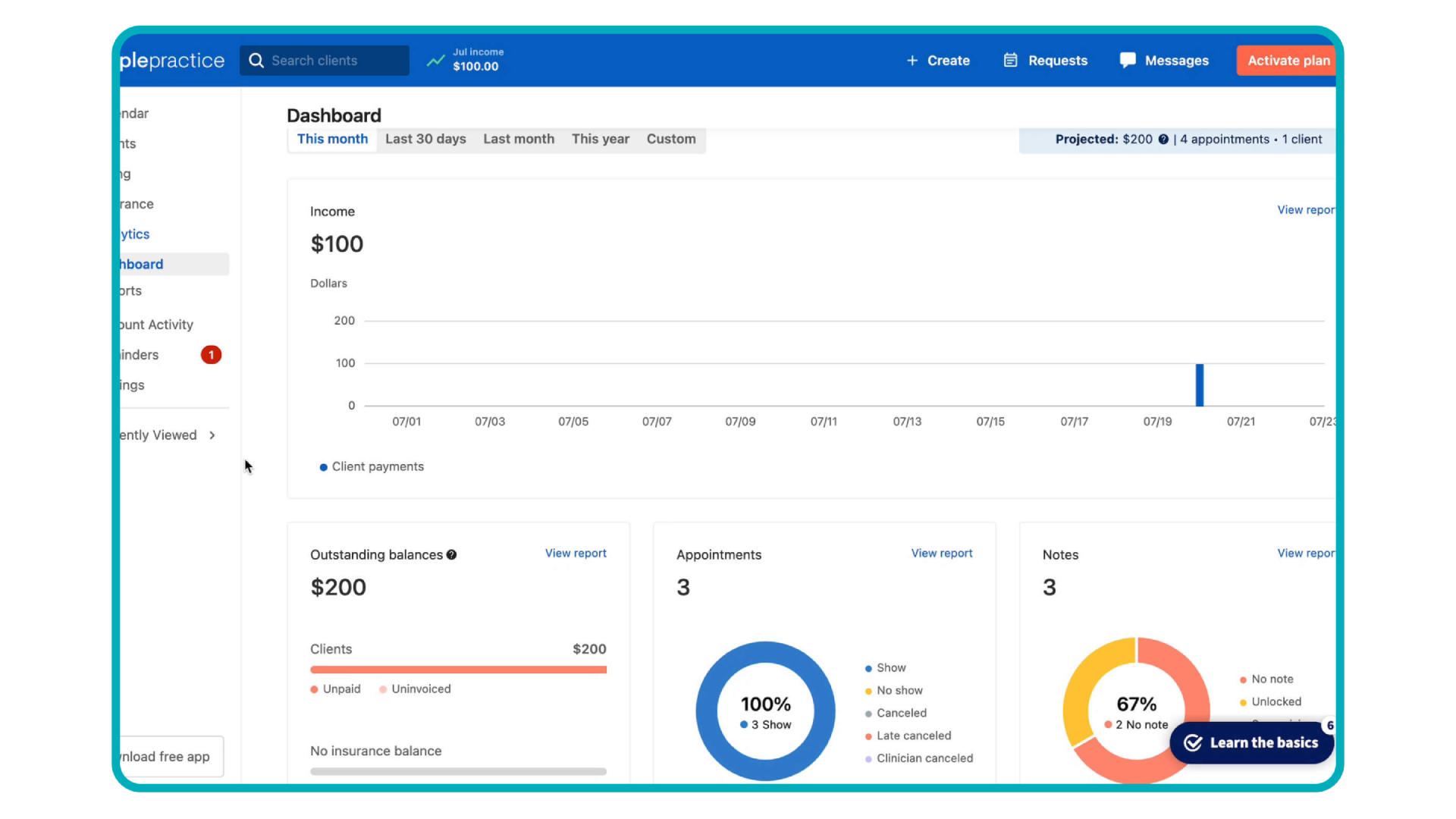
SimplePractice PMS Dashboard
Headquartered in Santa Monica, California, SimplePractice offers a cloud based PMS designed to simplify private practice operations for therapists, counselors, dietitians, and related professionals.
The platform integrates scheduling, billing, documentation, and telehealth, plus:
- Online client booking and payments.
- Insurance claim tracking.
- HIPAA compliant telehealth and customizable clinical templates
Strengths
- Easy to use interface
- Affordable pricing
- Strong mobile app
Limitations
- Limited complex billing support
- Less customizable than larger systems
4. Kareo Clinical (Now Tebra)
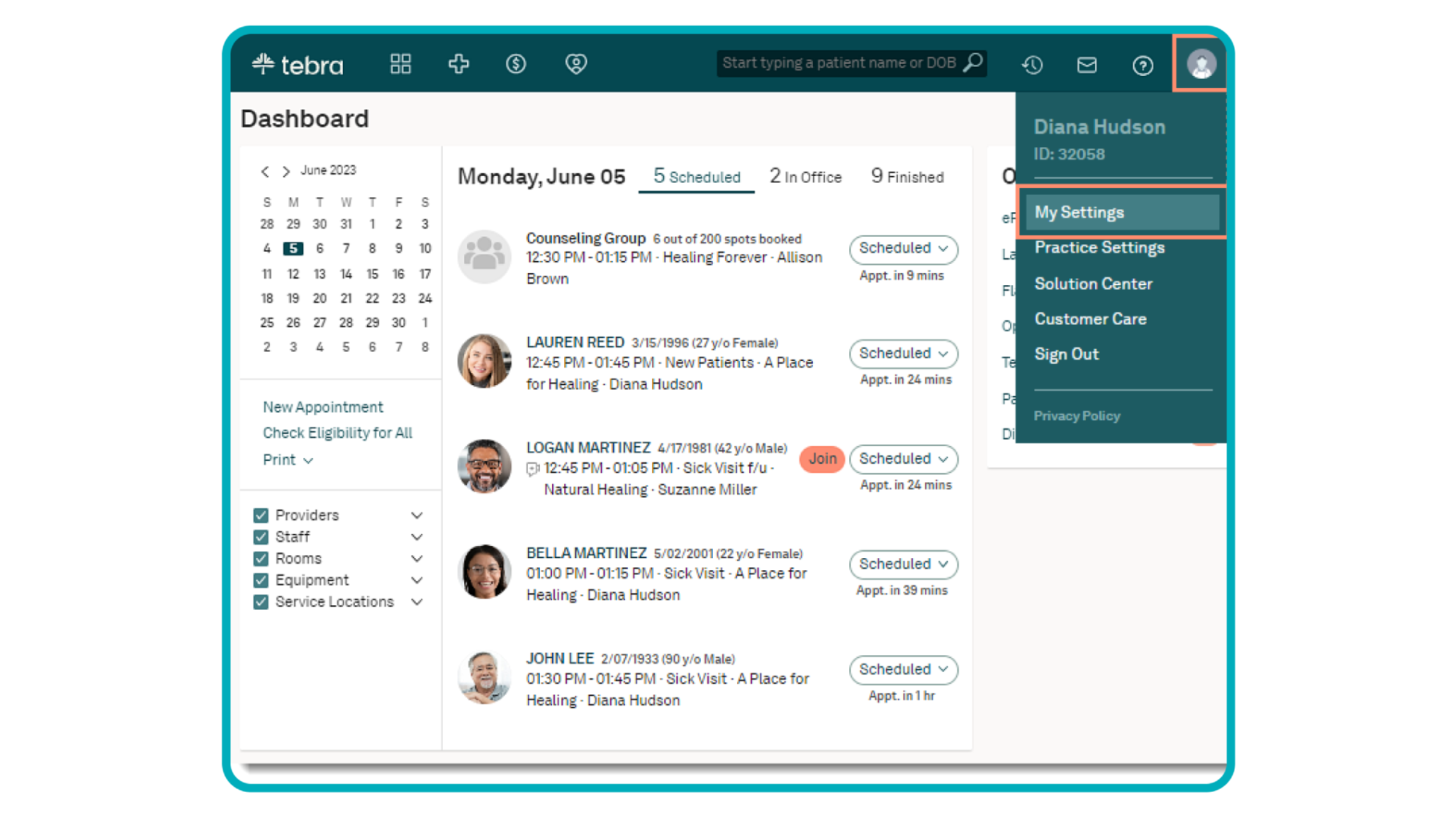
Tebra PMS Dashboard
Originally launched in 2004 and now part of the Tebra ecosystem, Kareo supports small to mid sized practices with strong billing and practice management features.
Its PMS provides:
- Comprehensive revenue cycle management.
- Automated reminders and patient check‑in.
- EHR integration.
- Real time financial dashboards.
Strengths
- Focus on RCM and financial performance
- Affordable for small practices
- User friendly
Limitations
- Limited scalability for large multi location practices
- Basic telehealth
5. PracticeFusion
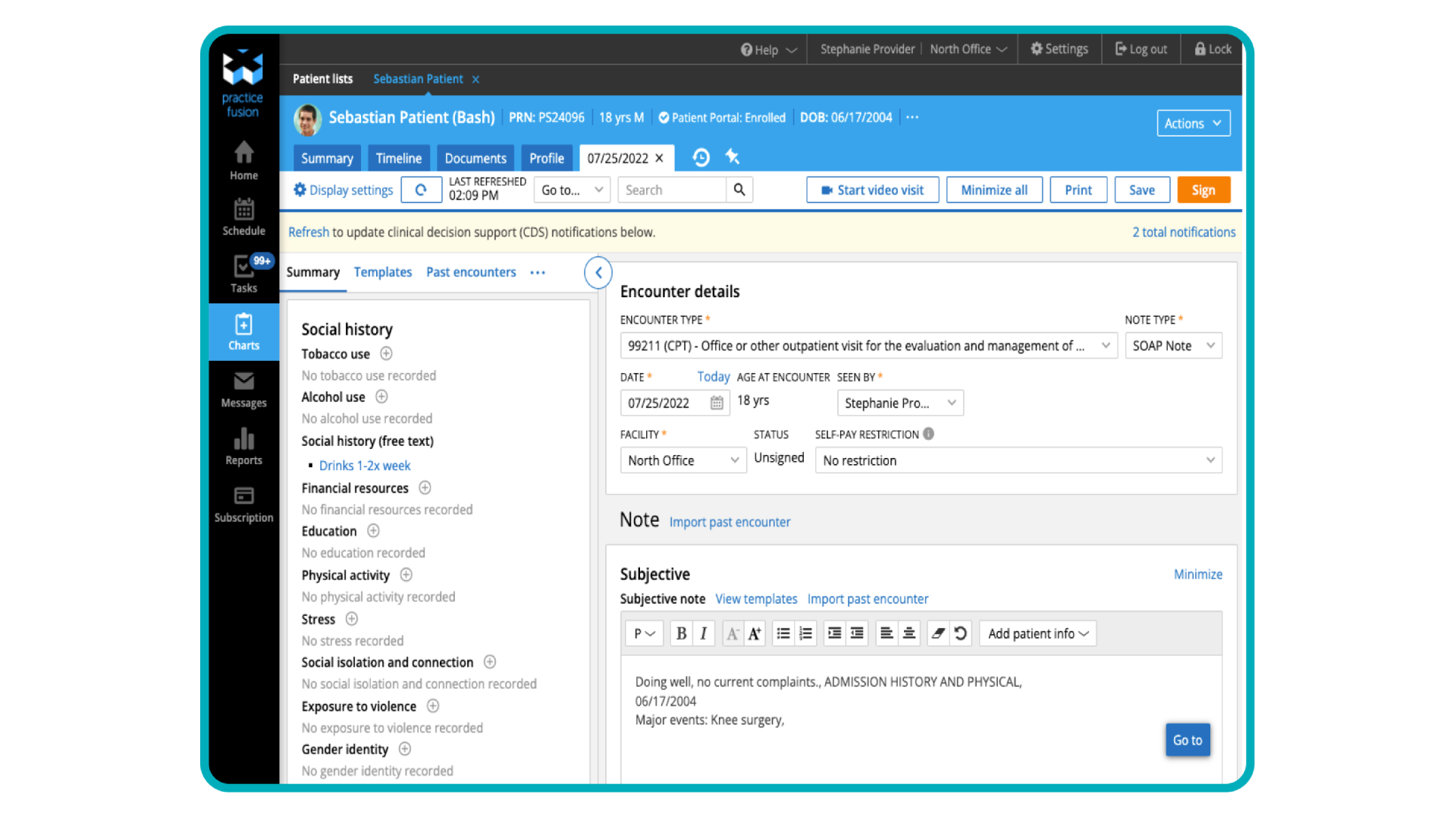
PracticeFusion PMS Dashboard
PracticeFusion, a pioneer in cloud based EHR, introduced its PMS in 2014 to refine administrative workflows. Acquired by Allscripts in 2018, it remains a cost effective cloud based PMS option.
Its PMS includes:
- Anytime, anywhere access.
- Free version with ad support.
- Scheduling tools and patient reminders.
Strengths
- Cost effective for small practices
- Cloud accessibility
- Easy setup
Limitations
- Limited features compared to paid options
- Ad supported experience
- Basic functionality for larger clinics
6. AdvancedMD
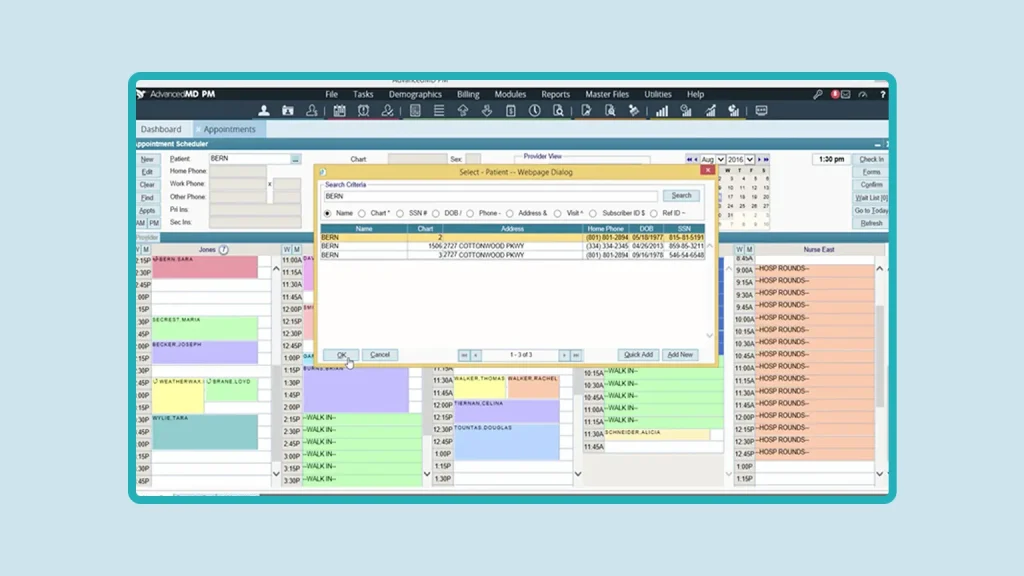
AdvancedMD offers an integrated suite of practice management, EHR, and RCM tools tailored for independent practices looking for end to end automation.
Key highlights:
- Automated eligibility and claims management.
- Built in telehealth.
- Patient portal with online scheduling and eforms.
- Customizable reporting.
Strengths
- Fully integrated suite
- Advanced reporting and dashboards
Limitations
- Pricing may be higher for very small practices
- Setup can take longer
7. eClinicalWorks
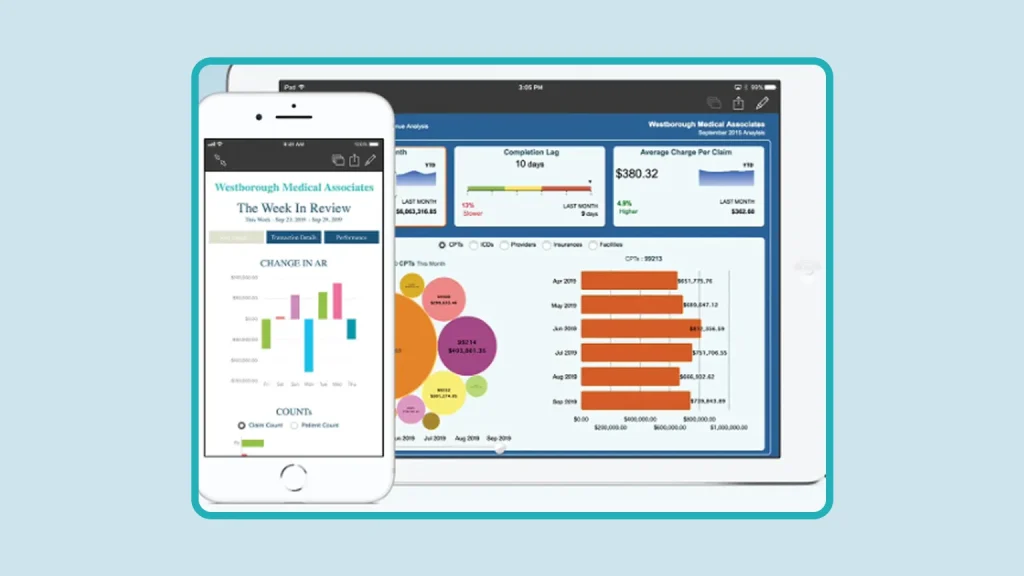
eClinicalWorks is a comprehensive healthcare technology platform that combines practice management with a robust EHR, patient engagement tools, and analytics.
Key features:
- Integrated PMS with clinical workflow support.
- Population health and patient outreach modules.
- Telehealth and mobile app support.
Strengths
- Strong integration across clinical and administrative functions
- Scalable for growing practices
Limitations
- Can be complex for first time users
- Higher learning curve
How to Choose the One That Best Meets Your Needs?
A random search for “Practice Management Systems” returns millions of results, scattering your focus. Use these steps to make a clear, well informed choice:
1. Start with an assessment.
Understand what your clinic struggles with most, no shows, billing gaps, or workflow inefficiencies?
2. Figure out must have features.
Top attributes include:
- Insurance eligibility verification
- Claims denial management
- Electronic claims processing
- Appointment scheduling
- Population health analytics
- Billing and invoicing
- Telemedicine tools
3. Research and analyze vendor options.
Check background, reputation, case studies, and user reviews. Identify vendors offering core features at the best value. After narrowing your top choices, request proposals.
4. Compare costs, security, scalability, and system integrity.
Cost matters but should never outweigh quality. Prioritize:
- Patient data security
- Scalability for growth
- System reliability and uptime
- Interoperability
These elements ensure compliance, efficiency, and patient satisfaction.
Why OmniMD Is the First Choice for Over 12,000 Practitioners
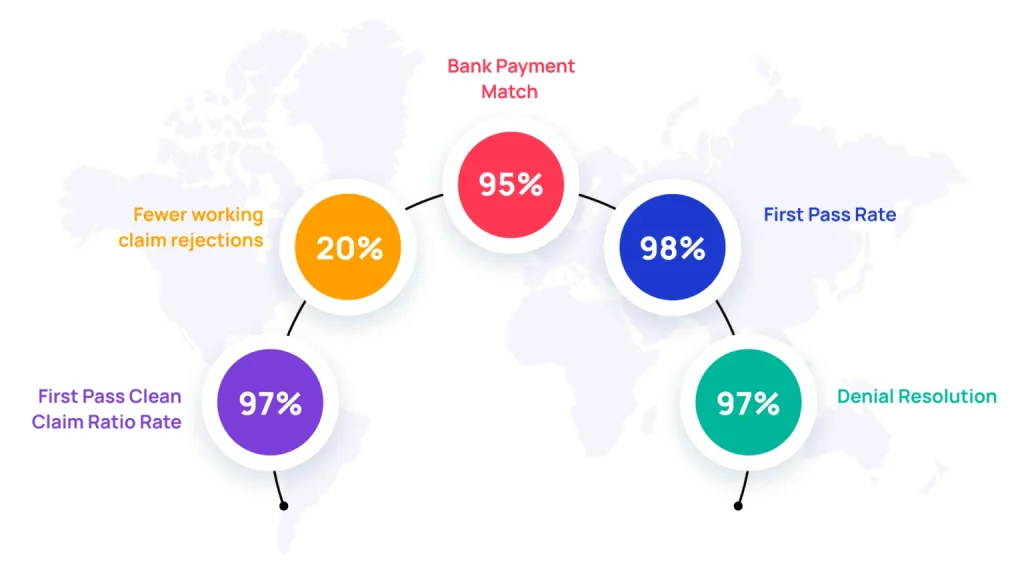
Whether you’re aiming for deeper operational insights or simply want to reduce your staff’s administrative workload, our Practice Management Software delivers performance and value that truly stands out, especially in the future’s competitive healthcare landscape.
Here’s what makes OmniMD a preferred choice for over 12,000 healthcare providers:
Unified Workflow
We bring clinical, administrative, and financial tasks into one platform.
- Patient records, scheduling, billing, and eligibility checks all flow seamlessly together.
Automated Intelligence That Drives Efficiency
From automated claims submission to eligibility verification and payment posting, routine tasks are streamlined, reducing manual errors and administrative delays.
Better Financial Performance
- Built in analytics help practices track trends, identify bottlenecks, and optimize revenue cycle workflows.
- Real time dashboards give managers instant insight into financial health.
Enhanced Patient Experience
By automating appointment reminders, confirmations, and follow‑ups, we help reduce no-shows and improve patient engagement.
Scalable for Growth
Whether you’re a solo clinician or a multi location practice, we scale with your needs, without compromising performance or compliance.
Secure and Compliant
Designed for healthcare, OmniMD meets industry standards for security and HIPAA compliance, giving practices and patients peace of mind.
In short, OmniMD isn’t just a tool, it’s a platform that enables practices to operate smarter, faster, and more effectively.
Disclaimer
We’ve built this resource with healthcare professionals in mind, ensuring that it saves you time and offers clarity in your decision making process. However, the comparison is based on independent research conducted by our team, leveraging publicly available information and vendor provided resources. Features and pricing details may vary; we recommend reaching out to the respective vendors for the most accurate and up to date information.

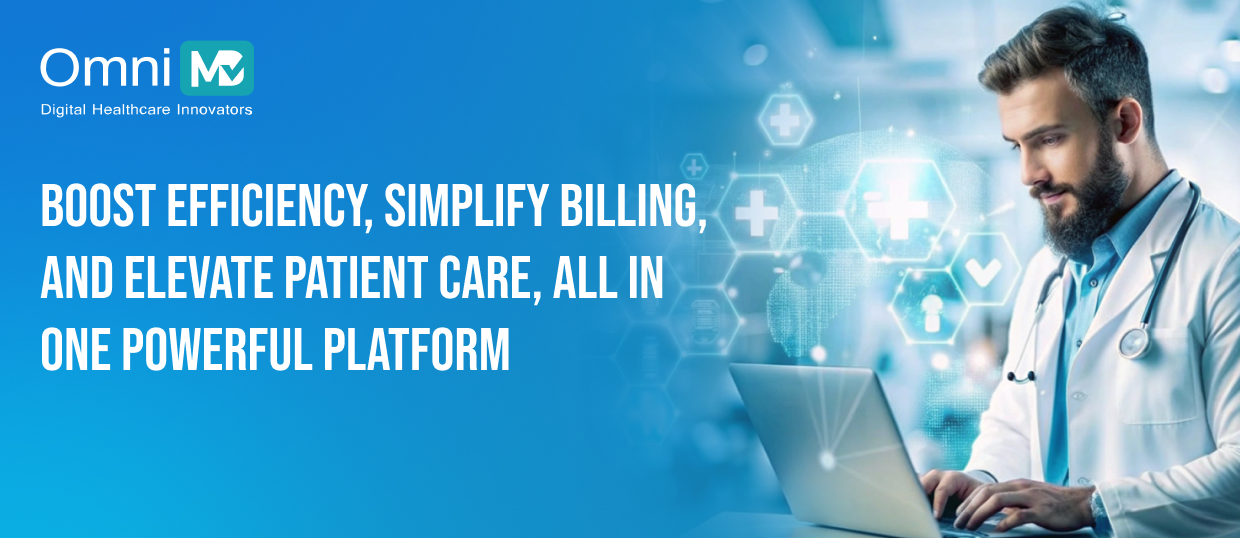
 Written by Dr. Giriraj Tosh Purohit
Written by Dr. Giriraj Tosh Purohit